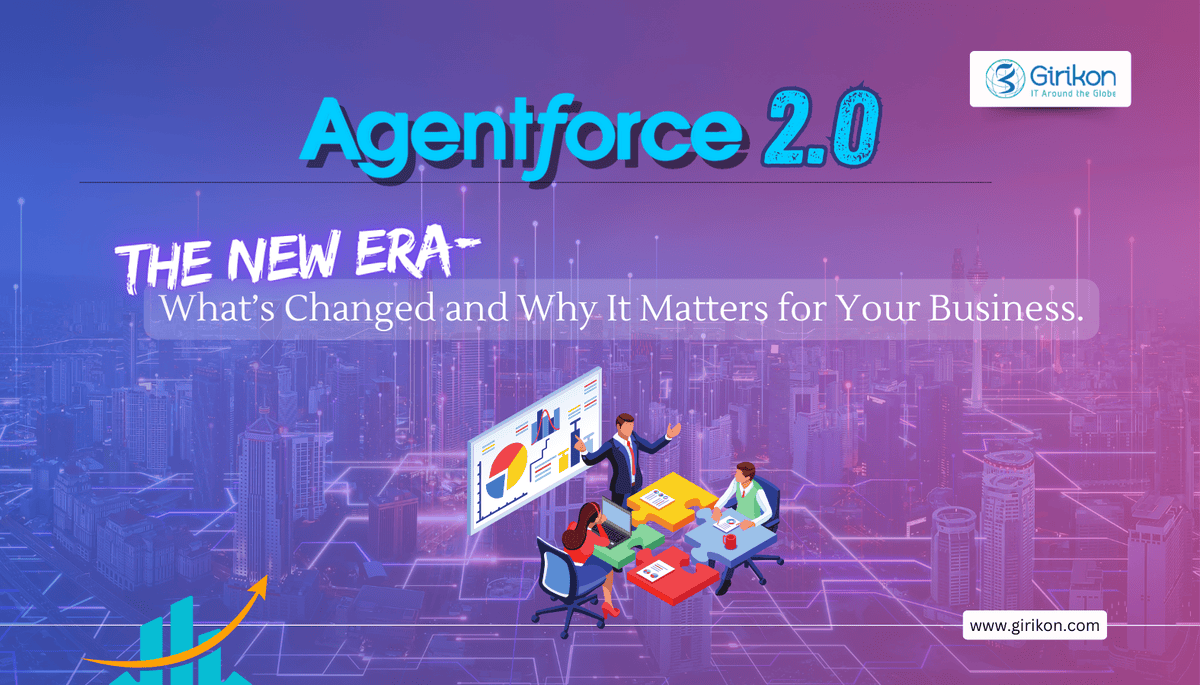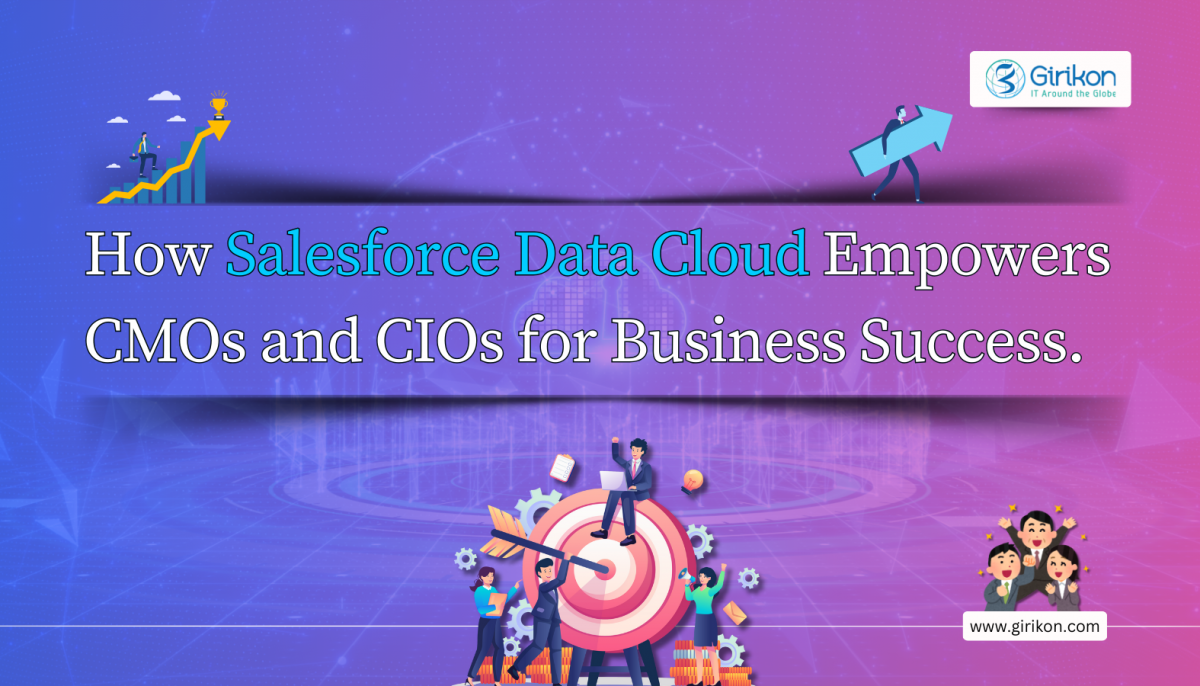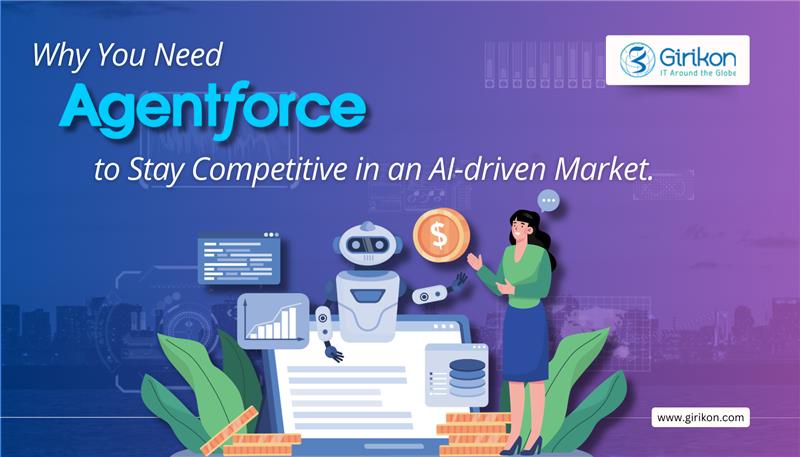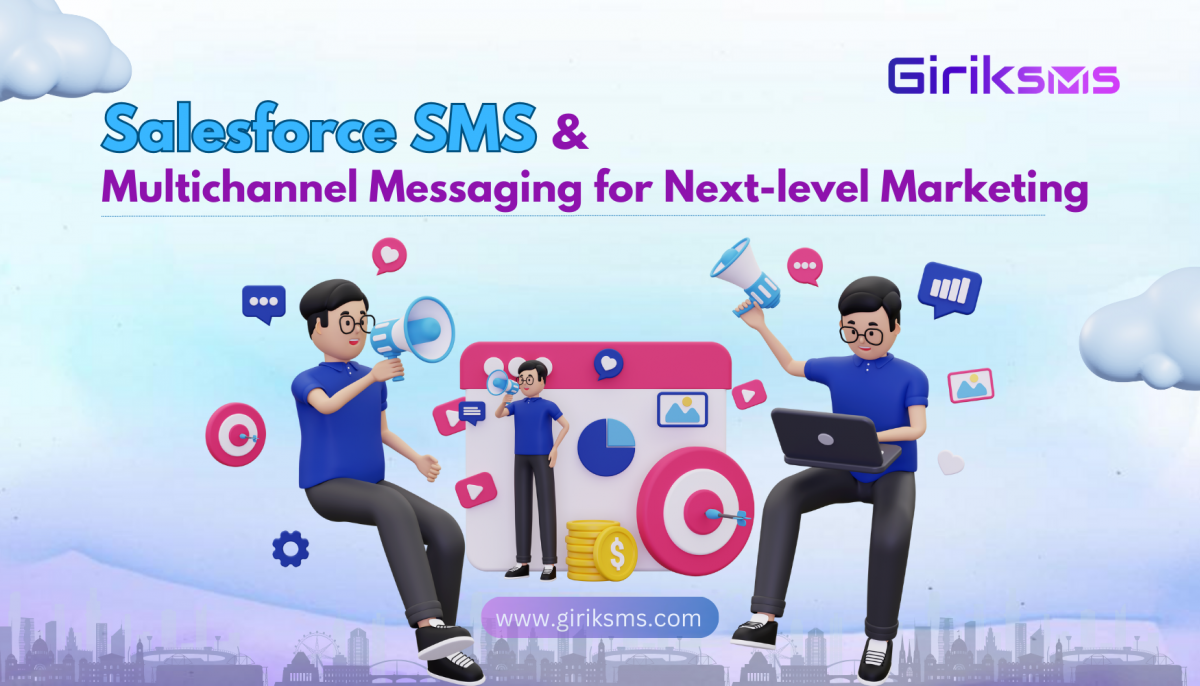Our Blogs
Technology is in a constant state of flux and Salesforce, the world’s leading CRM platform is on the front lines of innovation to bring transformative technology to businesses worldwide. Here is a look at how AI is poised to transform the way we work and a sneak peek into the disruptive power of generative AI.

AI will transform the future of work
Generative AI presents an exciting new opportunity for businesses to tap into the creativity and innovation of their workforce like never before. Here are 6 predictions from Salesforce leaders on what the future workplace will look like.
1. AI will transform how we imagine and measure human productivity.
According to a State of Work report published by Salesforce, 60% of business executives say their primary method to measure team productivity is by tracking work hours and email communications. But this is set to pivot around AI. With AI at the workplace, much of the mundane, repetitive work regarded as productivity inputs up until now will be replaced by AI.
In the months to come, companies will see a transformative shift in the way performance and productivity are measured by focusing on tangible outcomes such as products launched or leads generated. To achieve this, businesses will need to measure impact rather than measuring activity. Business leaders will have to clearly define the results they want and back their teams to align efforts in the backdrop of these clear goals.
2. AI will free up employee time for more meaningful work.
AI is on course to becoming the primary choice for automating workflows so that businesses can achieve full autonomy over the next year or so. There is huge potential for AI to automate mundane tasks across the organization, from marketing and pre-sales to order processing to customer support.
By identifying repetitive tasks and leveraging organizational data to drive intelligent predictions and generate automated next steps, AI is well placed to automate and optimize traditional work patterns to free up employee time to do more meaningful profitable work.
3. AI will offset a persistent and recurring challenge for businesses – Agent attrition.
Retaining customer service staff has been a thorn in the flesh for businesses. With generative AI, they can automate multiple aspects of customer service and boost the adoption of self-service, translating to a significant reduction in recruitment costs and an improvement in agent productivity.
4. Companies will leverage data and AI to boost productivity.
The average employee is fraught with information overload. Siloed data is responsible for over 10 wasted work hours every week. In the next months, businesses that adopt generative AI will see the real impact of this technology on how they work and interact with that data.
Companies have already started deploying AI-powered knowledge bases to drive self-service, assist field teams, and get more out of customer data. In the longer term, the productivity of teams will go up a few notches with more advanced generative AI capabilities like task automation and automated trends and insights.
5. The workplace will become smarter with AI.
Future-looking businesses have already adopted chatbots and AI-powered virtual assistants to simplify and augment customer service. Going forward, generative AI will also provide quick replies to inquiries, provide guidance to employees, and expedite service requests. It is predicted that AI will play a significant role in driving employee engagement, predicting the services they need to thrive before they even know they need them.
6. Businesses will adapt to an AI-driven re-imagined workplace.
Today’s top talent want more from their employer over and above a paycheck. To address this demand, organizations will invest more time and resources in creating a work culture that supports employees beyond the confines of the workplace. These investments will eventually translate to greater employee satisfaction (ESAT), higher employee retention, and overall success. Organizations that focus on these areas will lead the way.
Five ways generative AI is poised to reshape the future of business
Over 75% of business leaders say they are worried their organization is missing out on the promise offered by generative AI, not just in terms of what the technology can do, but the snowballing effect it can have on the industry. Here’s how some of Salesforce’s sharpest minds see the impact of generative AI in the coming year.
1. Generative AI will become fully operational across the enterprise.
Starting with empowering sales, marketing, and customer service teams, and writing code for engineering teams, AI will eventually impact every department. The next big leap will be when generative AI is leveraged not just for content generation, but analysis, decision-making, and business automation. With advances in AI and the wide adoption of chatbots and virtual assistants, businesses will see a marked improvement in efficiency across all workstreams.
And while initial Large Language Models (LLMs) will continue to be the backbone of generative AI, organizations will also start adopting custom, domain-specific language models for cost and latency benefits.
2. AI will transform every industry.
AI will be embedded into every layer of product engineering to deliver value to customers. Not just that, AI will also transform the way these products are built. By generative AI powered code development, engineering teams can improve their productivity and ability to focus on solving more complex problems. As products evolve, so will customer needs and preference. In short, AI will impact every aspect of the tech industry including market dynamics and customer behavior.
3. Generative AI will supercharge efficiency.
Advancements in semantic prompt processing, a machine learning technique in which a question written in natural language is interpreted by a machine will transform customer service. Companies will be able to deliver quick, personalized service at scale with AI using rich media such as images and video. This will set the stage for a more intuitive digital economy benefitting businesses as well as end users.
As AI grows more proficient at surfacing insights from organizational data regardless of their original structure, we will witness a surge in businesses adopting semantic prompt processing capabilities with the amalgamation of structured and unstructured data, such as sales figures and customer reviews, customer demographics, and social media activity.
4. Businesses will focus on customer-centric strategies
Today everything is digital – whether engaging with a chatbot, a mobile app, a website, or social media, and this includes generative AI. The value to the customer is the experience and its efficacy. To the business, the value is in the business outcome. The technology of generative AI is not the end in itself but a means to deliver that value to customers and businesses.
5. Embrace generative AI or perish
Gartner expects that by 2026, more than 80% of businesses will use generative AI in the live environment, compared to less than 5% in 2023. Generative AI will percolate to every organizational layer, whether it’s for making informed decisions or performing routine daily tasks. From sales forecasting to talent acquisition, all departments across an organization will witness a transformational shift in the way they work.
At Girikon, a Gold Salesforce Consulting Partner, we believe that the generative AI revolution will level the playing field regardless of the size of the enterprise. By 2025, AI won't be a good-to-have tool anymore but the axis around which businesses will revolve, signaling an era of unprecedented transformation.

 +1-480-382-1320
+1-480-382-1320 +44-7428758945
+44-7428758945 +61-1300-332-888
+61-1300-332-888 +91 9811400594
+91 9811400594


















